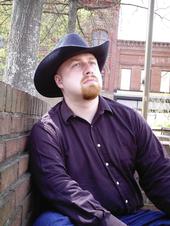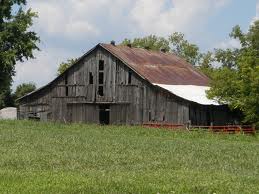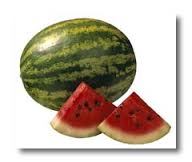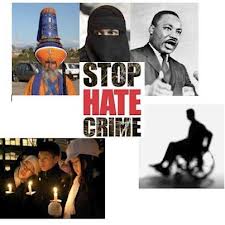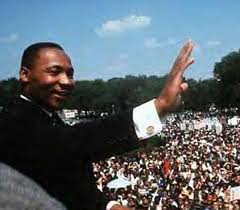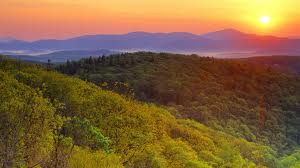I would like to tell you a story of progressive Christian history, a powerful story that happened here in the south. This is the story of Clarence Jordan and the Koinonia Farm.
Koinonia Farm formed in the 1940s in Americus, Georgia. During this time the law divided people in the south along racial lines: there white schools and black schools, white businesses and black businesses, white sides of town and black, white and black churches. And if you crossed those racial lines you ended up the creek without a paddle. You could be attacked and lynched by a mob. Even the law itself could turn on you.
Baptist preacher Clarence Jordan became convinced that the Gospel was not just about a personal encounter with the living Jesus – which Jordan had himself at the start of his Christian journey, and very much believed in. It was also about social transformation and about reconciling all people as one. Influenced by early Christian progressives like Walter Rauschenbusch, Jordan began to preach that our faith was as much about the Kingdom of God as it was about a personal experience of Jesus through “being saved” or “being born again”.
Rauschenbusch pointed out that Jesus preached more about the Kingdom of God than personal experiences of God, with most of his sermons being parables of this Kingdom. What is the Kingdom? It is
the energy of God realizing itself in human life … [ to affect] the redemption of social life from the cramping influence of religious bigotry, from the repression of self-assertion in the relation of upper and lower classes, and from forms of slavery in which humans are treated as mere means to serve the ends of others… [It is] the redemption of society from political autocracies and economic ogliarchies; the substitution of redemptive for vindictive [forms of justice]; the abolition of constraint through hunger as a part of the industrial system; and the abolition of war as the supreme expression of hate and the completest cessation of freedom. (A Theology for the Social Gospel)
In short it is about answering the prayer of Jesus “thy kingdom come, thy will be done, on earth as in heaven”. Jordan looked around at the Jim Crow south divided by very stark differences of rich and poor and of black and white, and knew it needed a witness to the call to the kingdom Jesus gave, a call to transform society into a place where all are welcomed as equal, with equal access to the table, and equal voice regardless of background, class, or race.
Out of this conviction Jordan worked with others to begin Koinonia Community. Jordan looked at the example of the early Christians in the book of Acts and saw how they sold their excess goods, gave to the poor, pooled their resources together so none went without. He chose to form a farm that did just this: where intentionally those formerly poor and formerly rich worked together hand in hand as equals, where black and white families worked together as if a part of the same family farm, and the principles just described of the Kingdom were the guiding light for how the community functioned. Sharing all things in common, this community became a strong and powerful witness to how the Gospel of reconciliation if followed would tear down the entrenched racial divides and systemic bigotries of the southeast.
Ultimately Martin Luther King and the early Civil Rights movement finds much support from the Koinonia community. Yet they faced ongoing persecution from the community at large due to their stance against the prevailing bigotry and racism of their day. And even at points where some in the Civil Rights movement seem to communicate that racism can be ended by politics and legislation, the Koinonia community stood firm that overturning racism will take more than legislation but also requires transformation of the heart and of the community at large.
 Jordan later records his writings and teachings in a number of books and lectures, including his popular Cotton Patch Bible. The theology Jordan creates helps inspire other works aimed at helping the Kingdom of God become more fully manifest here on earth as in heaven, such as Habitat for Humanity.
Jordan later records his writings and teachings in a number of books and lectures, including his popular Cotton Patch Bible. The theology Jordan creates helps inspire other works aimed at helping the Kingdom of God become more fully manifest here on earth as in heaven, such as Habitat for Humanity.
I think you can see how this communal farm became a way of making flesh and blood the reality of God’s Kingdom, and how it invited the world to be transformed not so just through preaching but through the way it lived out Gospel values.
To me this demonstrates how the need in our world is for all kinds of Christian communities that live out a witness for God’s Reign and Realm, standing against the powers that be and welcoming all as God’s children. I think many of these will become churches, but there are settings in which the most appropriate community to build would not be a church proper but some form of alternate Christian community that bridges the gap between the mainstream church and the hurting and broken in our world.
I want to challenge you to consider how you can be a part of making God’s kingdom come more fully here as it is in heaven. Perhaps you are called to begin a small community in your neck of the wood – a support group for those working toward recovery from addiction, a group committed to living out the call for social justice for specific groups not being treated fairly in your neck of the woods, a home where hurting children are welcomed into family, communal farms, neo-monastic communities, and yes progressive churches.
If you are feeling the call to help create an intentional Christian community here in the southeast, please feel free to contact me below. I’d love to help provide what support I can on this journey. Also I want to invite you to follow or contribute to the video training blog series, Progressive Christian Ministry Training, I and some other clergy are working on, aimed at helping providing resources for individuals called to help birth new progressive Christian communities. Right now I am in the process of putting together a video series specifically talking about beginning intentional progressive Christian communities. Most of all, make the step of faith to help be a part of building communities that help live out the reality of God’s kingdom here and now in this world.
And I’m not just whistling Dixie,
your progressive redneck preacher,
Micah



